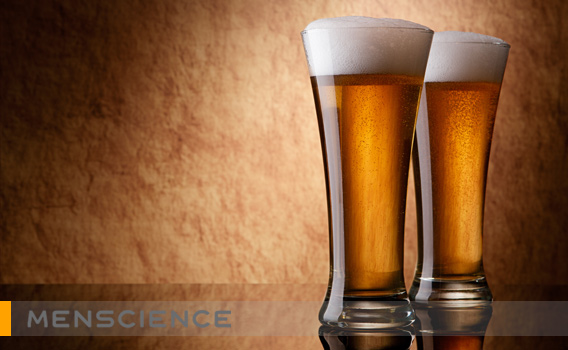While beer is a common sight at parties and other social gatherings, the drink isn’t exactly a staple at the gym. A new study out of the Technical University of Munich in Germany may soon change that, however: Research suggests that beer might be an effective recovery drink for marathon runners.
Before you get all excited and buy a six-pack, let’s get something straight — we’re talking about non-alcoholic beer; unfortunately, scientists didn’t look into the effects of alcoholic beer on marathon runners. As part of the study, researchers rounded up 277 male runners in their 40s and asked them to drink 2-3 pints of non-alcoholic beer every day, starting three weeks before their race and ending two weeks after. Half of the group received actual non-alcoholic beer; the other group received a similar-tasting placebo.
During this time, participants had blood samples taken and were checked for inflammation; they were also asked to report any signs of upper respiratory colds and illnesses. Running a marathon takes a toll on one’s body by contributing to inflammation and lowering immune response, so scientists were on the lookout for these specific factors.
In the end, those who drank non-alcoholic beer instead of the placebo reported fewer respiratory ailments and were found to have significantly lower levels of inflammation. Although it’s still uncertain what caused this discrepancy, researchers are attributing it in part to polyphenols in the beer – in other words, antioxidants.
If you’re not sold on beer as a post-workout supplement, there are other ways you can get antioxidants in your diet. Here are just a few simple suggestions:
1. Eat more fruits and vegetables. It’s an obvious solution, but not one that many of us enjoy. If you’re not a big fan of fruits and veggies, try different ways to incorporate them into your meals. For example, drop some berries into your morning bowl of cereal or try some more exotic vegetables like bok choy or beets, which have more flavor than the usual broccoli and cauliflower.
2. Take an antioxidant supplement. Antioxidant supplements are a convenient source of nutrition because they’re jam-packed with an assortment of polyphenols and other healthy nutrients. They are especially useful if you’ve tried your damnedest to eat your vegetables and just can’t stand them. Read more about antioxidants in “Antioxidants and Aging.”
3. Choose your snacks wisely. While fruits and vegetables pack the most antioxidants for your buck, they aren’t the only food sources with them. A lot of common snack foods also contain the polyphenols you’re looking for. Nuts such as almonds are a good choice – so is yogurt. Make sure you read nutritional labels to check if your favorite products contain antioxidants. “Top Power Foods for Men” has a good list of healthy foods.
4. Take a proven men’s post-workout supplement. Although non-alcoholic beer may have important antioxidants, it lacks much else in the nutrition department. You’re probably better off taking a post-workout supplement for men with carbs and protein to ensure your body has the fuel needed to make a full workout recovery. Read more about the importance of protein in “The Benefits of Protein for Men.”









